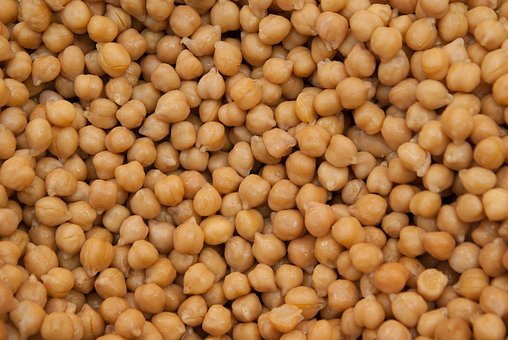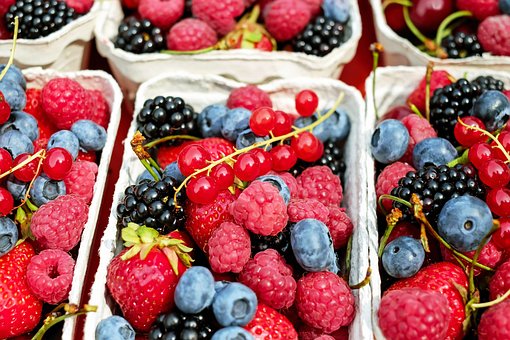7 Cholesterol-Lowering Foods to Add to Your Diet
The biggest cause of death worldwide is a heart-related illness.
An increased risk of cardiovascular disease has been related to greater cholesterol levels, particularly “bad” LDL cholesterol.
There is also a correlation between increased risk and having low levels of “good” HDL cholesterol and high triglyceride levels.
Your dietary choices have a significant impact not only on your cholesterol levels but also on other risk factors.
Here is a list of 7 foods that have been proven to lower cholesterol levels and other heart disease risk factors.
1. Legume
Beans, peas, and lentils are among the plant foods referred to as legumes or pulses. Sometimes, legumes are used to refer to legumes.
There is a significant amount of fiber, minerals, and protein in legumes. Try replacing some of your diet’s processed meats and refined grains with legumes if you want to lower your chance of getting heart disease.
According to a meta-analysis of 26 randomized controlled studies, consuming a half cup (100 grams) of legumes per day reduces “bad” LDL cholesterol by an average of 6.6 mg/dl as compared to not consuming legumes.
Other research has shown that eating pulses can lead to weight loss, and this effect was seen even on diets that did not severely limit calorie intake.

2. Avocados
Avocados are exceptionally nutrient-dense fruit.
They are a good source of monounsaturated fats as well as fiber, which are both nutrients that help reduce levels of “bad” LDL cholesterol while simultaneously increasing levels of “good” HDL cholesterol.
Avocados have been shown to have a cholesterol-lowering effect, according to clinical studies.
One study found that adults who were overweight or obese and had high LDL cholesterol and who consumed one avocado per day saw a greater reduction in their LDL levels than those who did not consume avocados.
An examination of ten separate studies concluded that eating avocados rather than other fats were associated with lower levels of total cholesterol, LDL, and triglycerides.
3. Nuts, particularly almonds and walnuts Particular
Nuts are another type of food that is exceptionally high in nutrient density.
They have a relatively high concentration of monounsaturated fats. Walnuts contain a high concentration of the omega-3 fatty acid variety found in plants. Omega-3 fatty acids are a type of polyunsaturated fat that has been linked to improved heart health.
In particular, almonds and other nuts have a high concentration of the amino acid L-arginine, which is necessary for the production of nitric oxide in the body. In turn, this contributes to the regulation of blood pressure.
In addition, nuts are a good source of phytosterols. These plant compounds have the same basic structure as cholesterol, and they help lower cholesterol levels by preventing the absorption of cholesterol in the intestines.
Nuts are a good source of calcium, magnesium, and potassium, all of which have been shown to lower blood pressure and the risk of developing heart disease.
A meta-analysis of 25 studies found that eating between two and three servings of nuts every day lowered “bad” LDL cholesterol by an average of 10.2 mg/dl.
It has been shown that people who consume one ounce of nuts daily have a 28% lower risk of developing fatal or nonfatal heart disease.
4. Fish High in Fat
Salmon and mackerel are two examples of fatty fish that contain a lot of long-chain omega-3 fatty acids.
By increasing levels of the so-called “good” cholesterol HDL and lowering inflammation and the risk of stroke, omega-3 fatty acids enhance heart health.
One large study that lasted for 25 years found that adults who consumed the most fish that was not deep-fried had the lowest risk of developing metabolic syndrome. A metabolic syndrome is a group of symptoms that includes high blood pressure and low levels of the “good” HDL cholesterol.
In a second large study involving adults of advanced age, those who consumed tuna or other types of fish that were baked or grilled at least once per week had a 27% lower risk of having a stroke.
Bear in mind that steaming or stewing fish is the method that preserves the most nutrients in the food. Eating fried fish may raise your chances of having a heart attack or a stroke.
The Mediterranean diet, which has been extensively researched for its beneficial effects on heart health, includes a significant amount of fish as a staple food.
Certain peptides found in fish protein may be responsible for some of the cardiovascular benefits of eating fish.
5. Fruits and Berries
For several different reasons, fruit is an excellent addition to a diet that is healthy for the heart.
There are many different kinds of fruit, all of which are high in the soluble fiber that helps reduce cholesterol levels.
It accomplishes this by urging your body to rid itself of cholesterol and by preventing your liver from producing a compound that is related to this process.
Pectin is a type of soluble fiber that has been shown to reduce cholesterol levels by up to 10%. It is present in a variety of fruits, such as apples, grapes, citrus fruits, and strawberries, among others.
In addition, fruit contains bioactive compounds, which, as a result of their antioxidant and anti-inflammatory properties, contribute to the prevention of heart disease and other chronic diseases.
Consuming these plant chemicals, which are notably abundant in berries and grapes, can help increase “good” HDL cholesterol levels while lowering “bad” LDL cholesterol levels.

6. Unsweetened Cocoa and Dark Chocolate
Dark chocolate’s primary component is unsweetened cocoa powder.
The claims that cocoa and dark chocolate can lower levels of “bad” LDL cholesterol are supported by research, even though they may sound too good to be true.
In one of the studies, normal adults were given a cocoa drink to consume at least once every other day for one month.
They saw a decrease in their levels of “bad” LDL cholesterol of 0.17 mmol/l, which is equivalent to 6.5 mg/dl. Additionally, their blood pressure was lowered, and an increase in their “good” HDL cholesterol was observed.
The oxidation of your blood’s so-called “bad” LDL cholesterol, which is a crucial factor in the development of cardiovascular disease, appears to be prevented by cocoa and dark chocolate.
On the other hand, chocolate typically contains a lot of added sugar, which is detrimental to one’s heart health.
Because of this, you ought to either make use of cocoa on its own or go for dark chocolate that has a cocoa content of 75–85% or higher.
7. Garlic
Both in the kitchen and the medical world, garlic has a long history of use dating back centuries.
It contains a wide variety of potent plant compounds, the most important of which is allicin, which is its active component.
According to several studies, garlic can bring down high blood pressure in individuals who have it and may also help bring down the total and “bad” LDL cholesterol, although the latter effect is not as strong.
Due to the relatively large quantities of garlic required to accomplish this heart-protective effect, the bulk of studies employs aged supplements, which are regarded as more effective than alternative garlic preparations.
